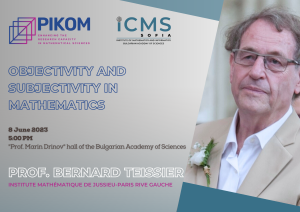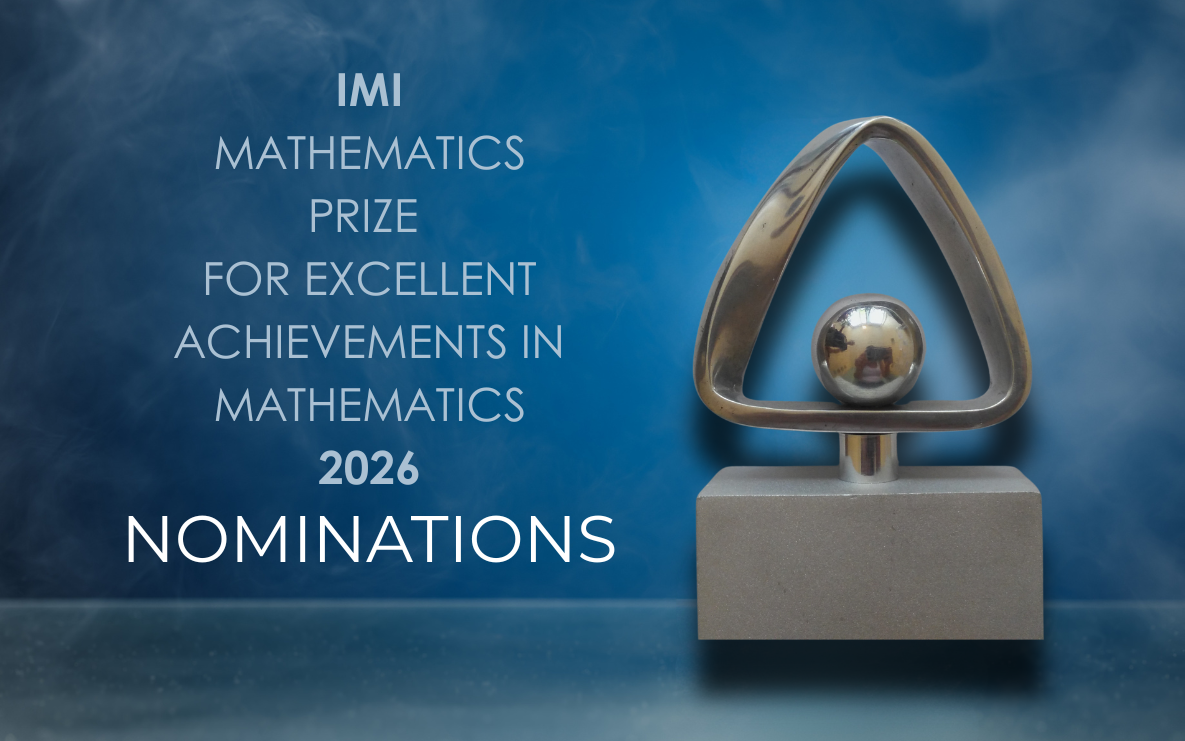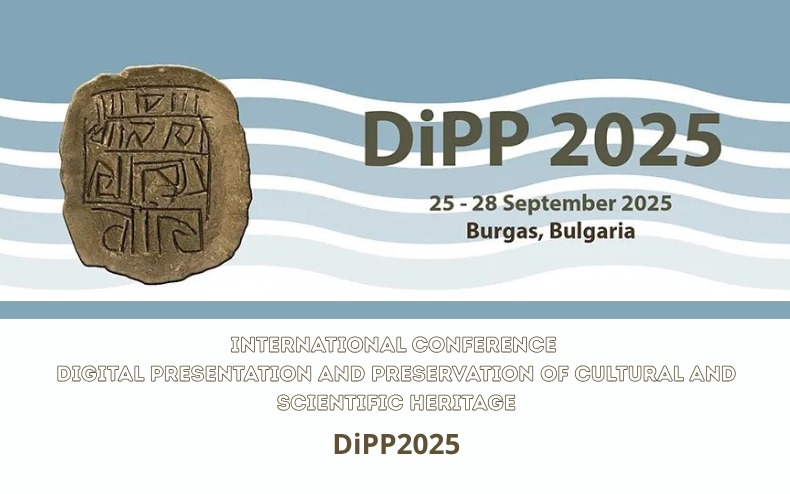Prof. Bernard Teissier, Institute Mathématique de Jussieu-Paris Rive Gauche, is visiting the International Center for Mathematical Sciences – Sofia and will deliver a lecture on “Objectivity and Subjectivity in Mathematics” next week.
Prof. Bernard Teissier is a world-renowned mathematician who works in the field of algebraic geometry, singularity theory and commutative algebra. On June 8, 2023, Thursday, from 5:00 p.m. in the “Prof. Marin Drinov” hall of the Bulgarian Academy of Sciences he will give a talk on “Objectivity and Subjectivity in Mathematics”. The event takes place within the framework of the BAS Academic Seminar.
Prof. Teissier is a guest of the program “Increasing research capacity in the field of mathematical sciences” (PIKOM) of the Institute of Mathematics and Informatics at the Bulgarian Academy of Sciences (IMI–BAS) and the International Center for Mathematical Sciences – Sofia (ICMS-Sofia). During his visit, he will work with colleagues from IMI-BAS on Lipshitz geometry of singularities of complex-analytic curves.
In 1967, Bernard Teissier graduated from the Ecole Polytechnique in Paris and the same year he decided to devote himself to mathematics after accidentally attended lectures by Oskar Zariski, one of the fathers of modern algebraic geometry, who later became his mentor. In 1968 Teissier became a PhD student of Heiske Hironaka – author of the theorem for resolution of singularities for which proof Hironaka was awarded the Fields Medal.
In the 1970s, Teissier was a visiting professor at Harvard University. After his return to France he fell under the influence of the famous French mathematician René Thom (Fields Medalist, 1958), who is one of the founders of singularity theory. In 1979, it became Directeur de recherche at the National Center for Scientific Research in France (CNRS). From 1987 to 1999, Teissier was a professor at the École normale supérieure in Paris (ENS). Since 2000, he has been associated with the Mathematical Institute Institute Mathématique de Jussieu-Paris Rive Gauche.
Abstract:
In the first part of the talk, I shall explore the consequences of distinguishing the foundations of meaning and the foundations of truth in mathematical statements, or imagination and rigor as motors of mathematical development. The foundations of meaning can be sought in our largely unconscious perception of the world, which modern cognitive science is exploring.
In the second part, I shall illustrate this by comparing two approaches to understanding mathematical problems: creating appropriate abstract structures, which is exemplified by Galois, Hilbert, Bourbaki and Grothendieck, or creating geometric models where we can use our intuition of space, of which Riemann, Poincaré and Thom were masters. This part requires some basic mathematical knowledge.










